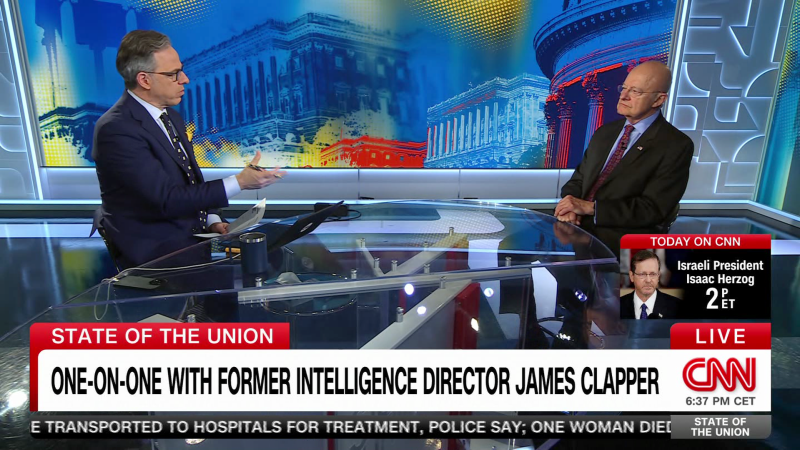In a recent interview with CNN’s Jake Tapper, former Obama Director of National Intelligence James Clapper discussed Iran’s recent attack on Israel, stating that it marked a significant turning point in the ongoing conflict in the region. Clapper described the attack as a “very profound event,” indicating the severity and implications of Iran’s actions. Despite the seriousness of the attack, Clapper expressed his belief that Iran does not necessarily want a wider war in the region. This perspective suggests that while Iran may be engaged in aggressive actions, they may not be seeking an all-out conflict with Israel or other regional actors.
Clapper’s comments shed light on the complexities of the situation in the Middle East, particularly in relation to Iran’s actions and intentions. By acknowledging the significance of the attack on Israel, Clapper emphasizes the potentially destabilizing impact of Iran’s actions on the region. However, his assertion that Iran may not want a wider war suggests that there may be limits to Iran’s intentions and objectives in the conflict. This nuanced perspective highlights the need for careful consideration and analysis of Iran’s motivations and strategies in the ongoing tensions in the region.
The concept of a “Rubicon” being crossed in the context of Iran’s attack on Israel further underscores the gravity of the situation. The use of this term implies a point of no return or a significant escalation in the conflict. By invoking this imagery, Clapper emphasizes the seriousness of Iran’s actions and the potential consequences for regional stability. The crossing of this metaphorical Rubicon suggests a turning point in the conflict, with far-reaching implications that could impact the dynamics of the region for the foreseeable future.
Despite the escalating tensions and the potential for further conflict, Clapper’s assessment that Iran may not want a wider war offers a glimmer of hope for de-escalation. This perspective raises the possibility that diplomatic efforts or negotiations could help prevent a full-scale war in the region. By highlighting the complexity of Iran’s intentions and motivations, Clapper encourages a nuanced approach to understanding and addressing the ongoing conflict, rather than resorting to simplistic or alarmist narratives that may exacerbate tensions.
Overall, Clapper’s comments on Iran’s attack on Israel provide valuable insights into the complexities of the situation in the Middle East and the challenges of navigating the escalating tensions. By emphasizing the significance of the attack and the potential implications for regional stability, Clapper draws attention to the urgent need for careful analysis and strategic responses to address the evolving dynamics in the region. His nuanced perspective on Iran’s motives and intentions encourages a more thoughtful and nuanced approach to managing the conflict, laying the groundwork for potential diplomatic solutions and de-escalation efforts in the future.


